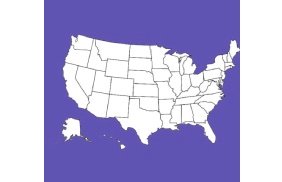Highlights
- The U.S. Drug Enforcement Administration (DEA) on May 16, 2024, issued a proposed rule to move marijuana from its current classification as a Schedule I drug to a Schedule III drug, thereby loosening federal DEA restrictions.
- The DEA is soliciting comments on the proposed rule, and the comment period will last 60 days from the publication of this proposal in the Federal Register, which is anticipated to be published on May 21.
The U.S. Drug Enforcement Administration (DEA) on May 16, 2024, issued a proposed rule to move marijuana from its current classification as a Schedule I drug to a Schedule III drug, thereby loosening federal DEA restrictions. In the Controlled Substances Act (CSA), marijuana is defined as “the plant Cannabis sativa L., whether growing or not; the seeds thereof; the resin extracted from any part of such plant; and every compound, manufacture, salt, derivative, mixture, or preparation of such plant, its seeds or resin.”
Current Marijuana Landscape
Marijuana is federally scheduled as a Schedule I drug; however, 38 states currently allow marijuana use for either medical, recreational purposes or both.
Under the CSA, Schedule I drugs have no currently accepted medical use and a high potential for abuse. Some examples of Schedule I drugs include heroin, LSD and ecstasy. A Schedule I categorization means that not only is marijuana use (including sale, distribution and ingestion) illegal federally, but also that researchers face strict restrictions regarding access to the product, even for research purposes only. Moreover, businesses that manufacture, distribute or sell Schedule I drugs are unable to access the U.S. banking system, leaving business in the 38 states that have legalized marijuana unable to access safe banking.
Rescheduling
The DEA proposes to reschedule marijuana to Schedule III, a lower schedule than Schedule I. Schedule III drugs, substances or chemicals are drugs with a moderate to low potential for physical and psychological dependence; examples include ketamine and anabolic steroids.
Rescheduling does not mean the DEA no longer has regulatory authority over marijuana. To the contrary, if marijuana is rescheduled to Schedule III, the DEA says that the “regulatory controls applicable to Schedule III controlled substances would apply.” In addition, the manufacture, distribution, dispensing and possession of marijuana would also remain subject to applicable criminal prohibitions under the CSA.
Rescheduling to Schedule III also means that marijuana would remain subject to applicable provisions of the Federal Food, Drug, and Cosmetic Act (FDCA). This means that containing a substance within the CSA’s definition of “marijuana” would need U.S. Food and Drug Administration (FDA) approval to be lawfully “introduce[d] or deliver[ed] for introduction into interstate commerce,” unless an investigational new drug (IND) is in effect for that drug. The agency notes that to date, no such drugs have been approved by FDA.
If finalized, the implications of this proposed rule remain unclear, as the proposed rule raises several questions. Specifically, it is not clear how the presumably thousands of businesses would comply with these federal requirements, given the myriad of state regulatory schemes for marijuana and the state business ecosystems built around marijuana. Although the proposed rule says that “regulatory controls applicable to Schedule III substances would apply,” it does not specify how these controls would or would not overlap with state laws. For example, the proposal does not specify whether state-licensed dispensaries would need to be licensed pharmacies, because only a pharmacy can dispense Schedule III drugs. Other questions surround the coordination of federal regulations related to drug approval, manufacturing, supply chain monitoring, storage and prescribing.
Notably, the proposed rule applies to marijuana only as defined in the CSA. That definition is limited to the plant (other than the mature stalks and seeds) and derivatives of the plant. Therefore, it does not apply to synthetically derived tetrahydrocannabinol (THC), which is outside the CSA’s definition of marijuana. THCs that can be derived only through a process of artificial synthesis (e.g., delta-10-tetrahydrocannabinol) are excluded from the proposed rule. Therefore, synthetic THC will remain in Schedule I. It also would not affect the status of hemp (as defined in 7 U.S.C. 1639o), because hemp was excluded from the definition of marijuana under the 2018 Farm Bill.
Next Steps
The DEA is soliciting comments on the proposed rule, and the comment period will last 60 days from the publication of this proposal in the Federal Register, which is anticipated to be published on May 21. By law, the agency must review and respond to all comments submitted. Once it reviews these comments, the DEA will develop a final rule.
Because of the salience of this issue, it is expected that the DEA will receive thousands of comments. Consequently, it will be several months before the agency finalizes its rulemaking.
Holland & Knight will continue to carefully monitor developments. The authors are available to advise on how stakeholders can submit comments in response to the proposed rule and provided additional insight on the proposed reclassifying of cannabis in a recent podcast. Please contact the authors for additional information.
Information contained in this alert is for the general education and knowledge of our readers. It is not designed to be, and should not be used as, the sole source of information when analyzing and resolving a legal problem, and it should not be substituted for legal advice, which relies on a specific factual analysis. Moreover, the laws of each jurisdiction are different and are constantly changing. This information is not intended to create, and receipt of it does not constitute, an attorney-client relationship. If you have specific questions regarding a particular fact situation, we urge you to consult the authors of this publication, your Holland & Knight representative or other competent legal counsel.




